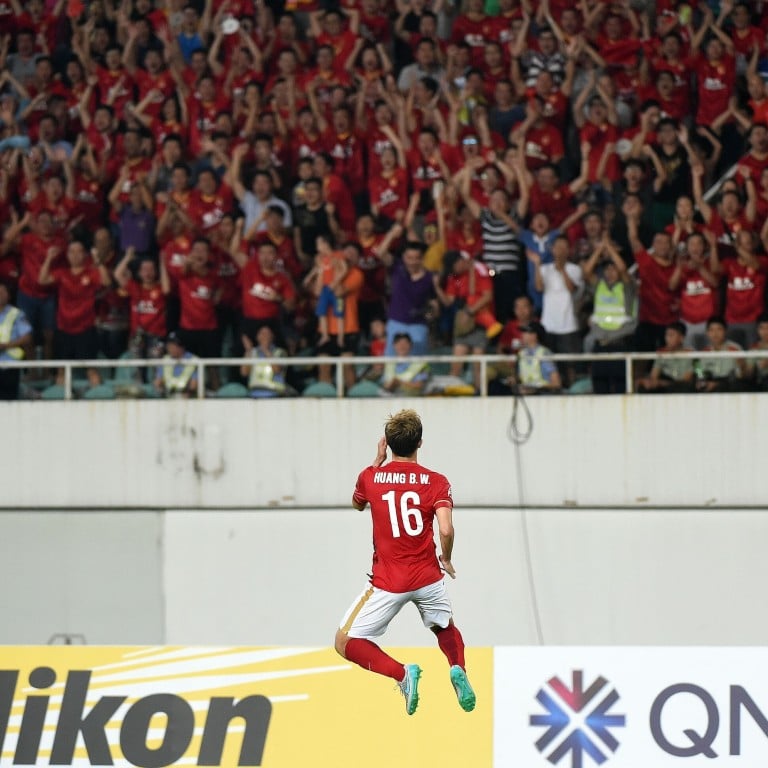
Explainer | Guangzhou Evergrande – China’s richest football club in need of bailout
- ‘Be The Best Forever’ demanded the club crest as years of big spending comes back to haunt it
- High-profile signings with wages to match plus investment in academy have left club short
It is five short years since Chinese Super League clubs were throwing the cash around to rival some of Europe’s biggest names, breaking Asian transfer records left, right and centre.
Guangzhou Evergrande – the reigning five-time champions of China – signed Colombia international striker Jackson Martinez from Atletico Madrid for €42 million in early February 2016.
The record lasted until Jiangsu Suning signed Brazil striker Alex Teixeira for €50 million from Ukraine’s Shakhtar Donetsk later in the month before it would be beaten again by Shanghai SIPG’s €55.8 million signing of another Brazil striker, Hulk, in June of that year. The Shanghai side would best it again that December when they signed Oscar from English Premier League side Chelsea for €60 million.
Those transfers helped Chinese clubs spend a collective US$451 million in 2016, double what they spent in 2015, to become among the world’s top five spenders.
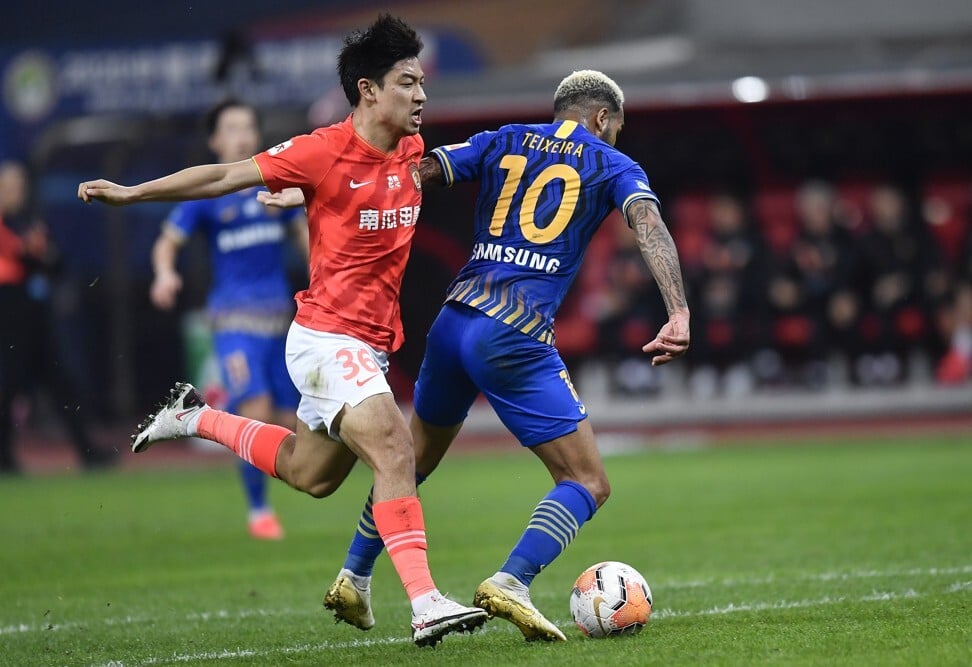
Five years on it has all changed. Martinez, Teixeira and Hulk have all gone, as have Jiangsu Suning.
The Chinese Super League champions folded before the current CSL season amid financial troubles for owners Suning.
Big-spending Guangzhou Evergrande seek government aid to survive
The fear is that the Guangzhou club will follow last season’s Chinese champions as owners Evergrande are mired in their own financial mess.
How did we get to a point where China’s most successful football club, the twice champions of Asia, stand on the brink?
Takeover
Guangzhou Evergrande became so when the property giant took over the club known as Guangzhou Pharmaceutical in 2010, paying 100 million yuan to do so.
Despite winning promotion from the second tier, the club had been immediately relegated as part of a match-fixing inquiry from the 2006 season and was under the control of the Guangzhou FA.
On taking over, Evergrande renamed the club and set about earning promotion, signing China star Zheng Zhi to assist that.
Cannavaro waiting on US$30 million payout: reports
Promotion was achieved first time and the club finished as Chinese Super League champions in their first season back in the top flight, going on to win seven CSL crowns in a row.
Aside from eight CSL titles in 10 years – they finished second to Shanghai SIPG in 2018 and to Jiangsu Suning last season – the club has also won the AFC Champions League twice, living up to the motto on its crest: “Be The Best Forever”.
As the club website says, “At present, Guangzhou Evergrande Taobao FC is believed to be the most successful and most influential football club in Asia.”
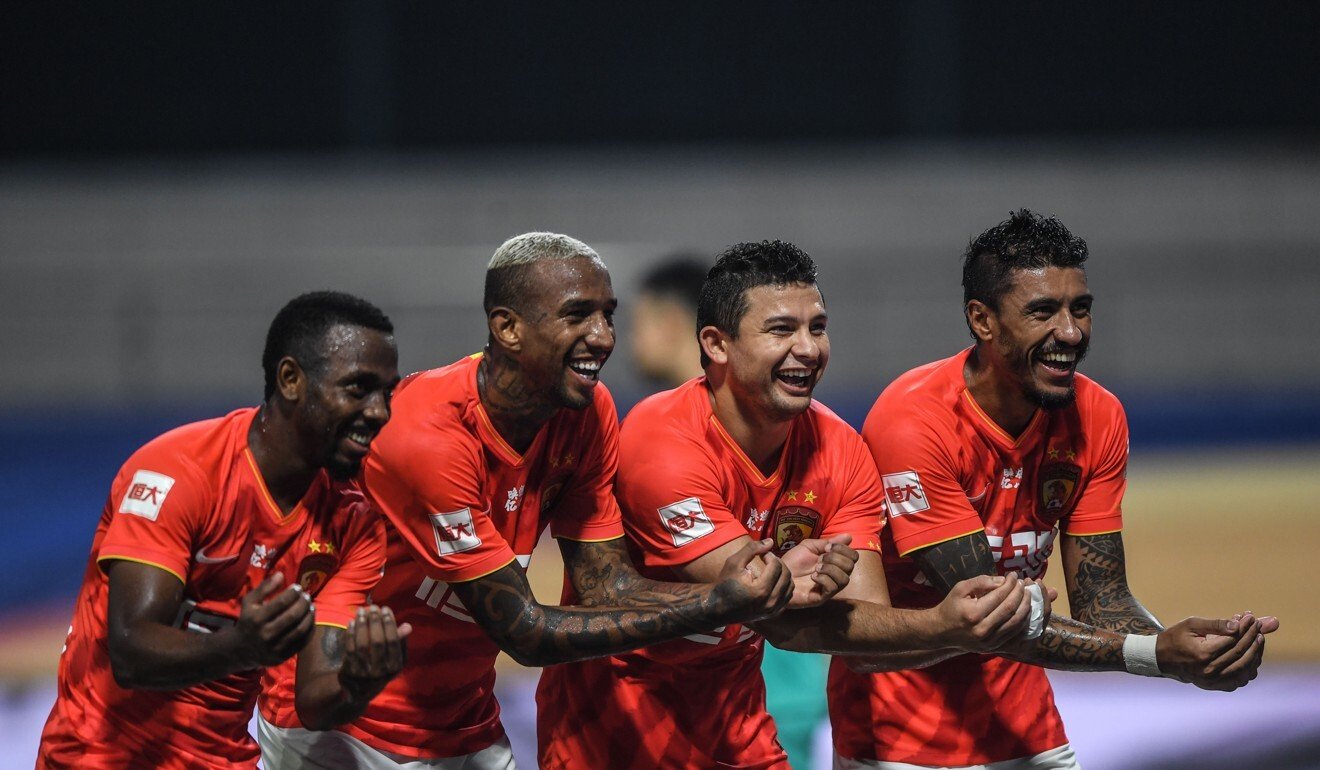
Heavy investment
Success has not come cheap. Aside from record signing Martinez, Evergrande have not been shy in pumping in money on transfer fees or on the accompanying wages needed to sway players.
In 2019, the club would re-sign Paulinho from Barcelona for €40 million after selling him to the Spanish side ahead of the Fifa World Cup in Russia in 2018.
Even before the boom of 2016 and the profligacy that followed, the club was seen as big spending.
‘Get out of China’ – Jiangsu fans hit out at Inter Milan president
In 2015, they spent €15 million on Ricardo Goulart and €14 million for Paulinho, but heavy spending went back much further than that and beyond the outlay transfer fees.
Argentine playmaker Dario Conca was reported to be the third-highest paid player in the world – behind only Lionel Messi and Cristiano Ronaldo – when he signed for Guangzhou in 2011.
Much of the money invested has been aimed at the managers. First, Italian Fifa World Cup winner Marcello Lippi was coaxed to China in 2012.
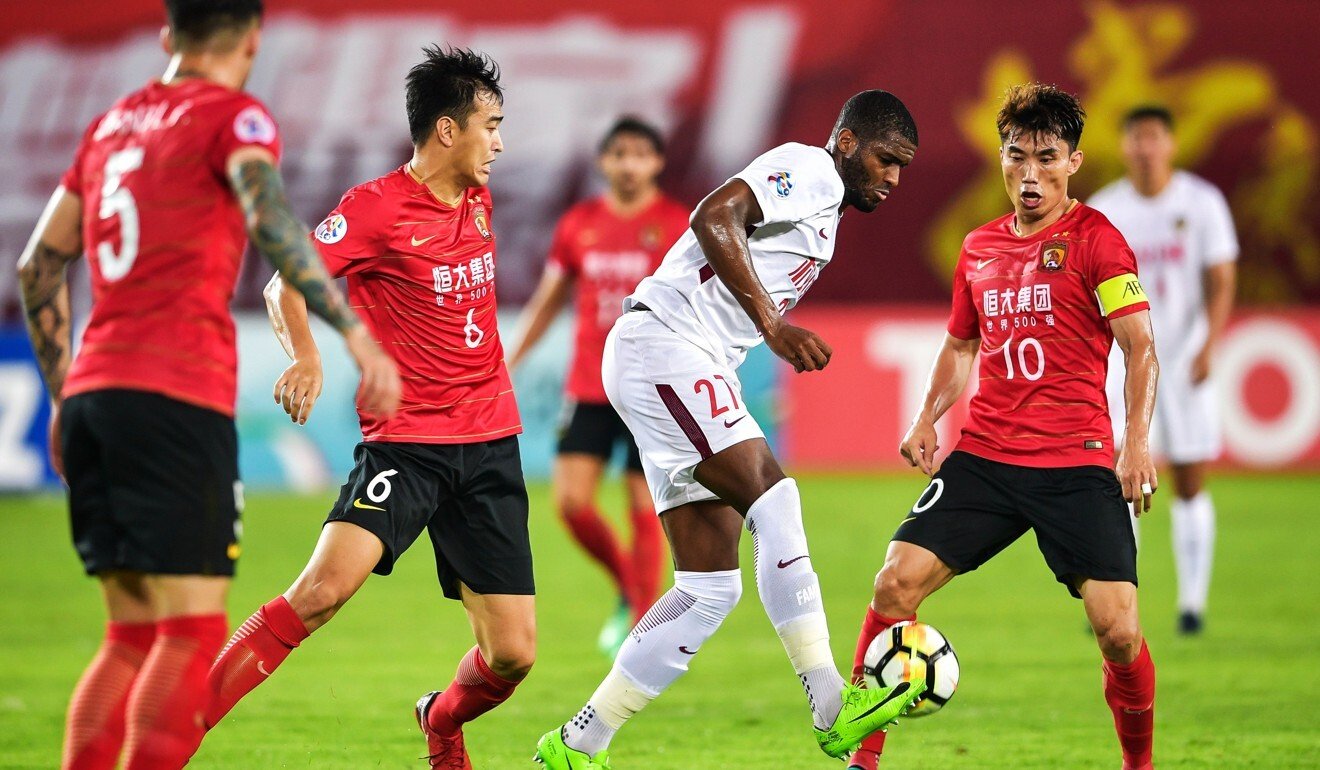
The club became champions of Asia under Lippi for the first time in 2013, beating FC Seoul in the final.
One World Cup winner was followed with another as Brazilian Luiz Felipe Scolari replaced the retired Lippi in 2015, also guiding the team to victory in the AFC Champions League. That year they beat UAE’s Al-Ahli.
Both Lippi and Scolari – along with current boss Fabio Cannavaro – were reported to be among the highest paid managers in world football during their time in South China.
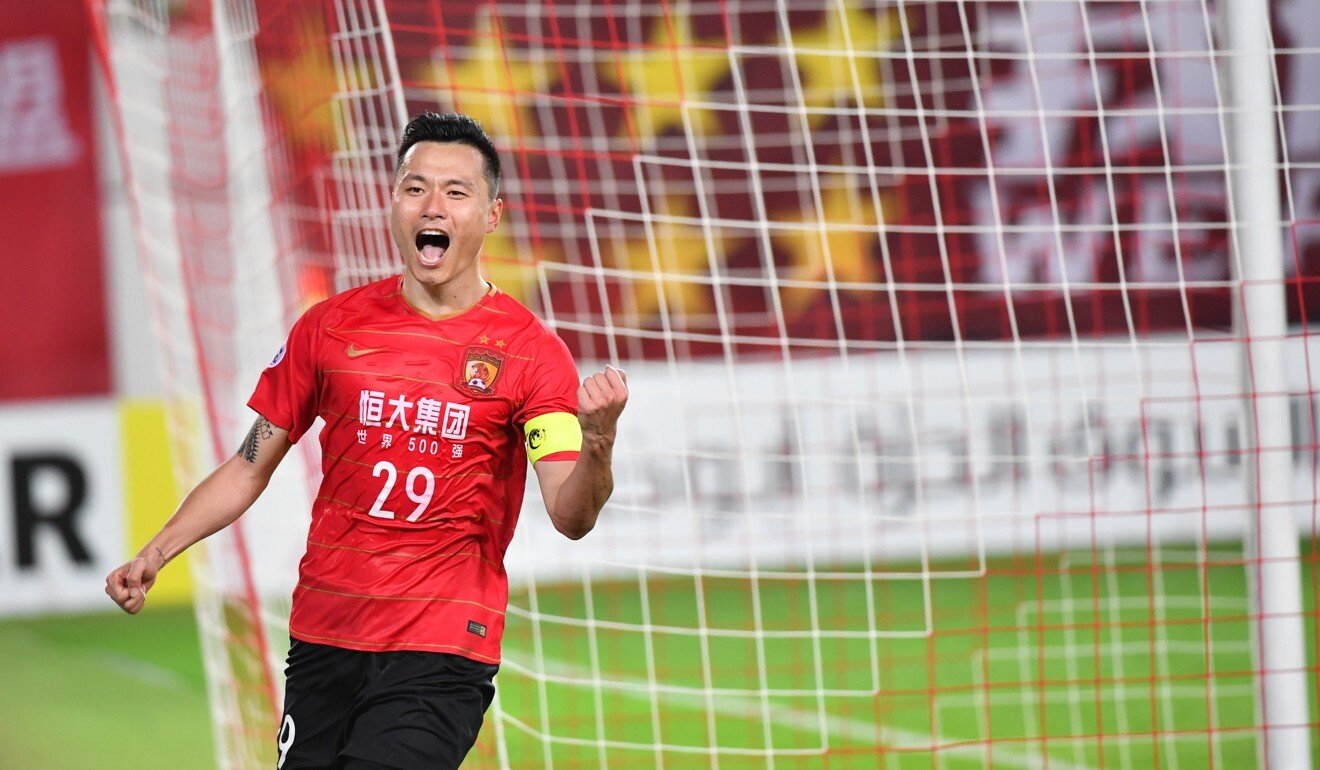
Money has been spent beyond the first team though.
The club opened the world’s largest football school in Qingyuan in 2012 at a reported cost of 1 billion yuan (US$156 million). Its goal was “revitalising Chinese football and cultivating future stars of the sport”, but it has failed to do so.
No players have progressed from the academy to be first team regulars since it opened.
Inspired Teixeira drags Jiangsu to first Chinese Super League title
There were plans to spend even more money.
Last year, plans were announced for a new stadium, the world’s biggest football-specific stadium. The “Lotus Flower” would have 100,000 seats, slightly larger than FC Barcelona’s Camp Nou.
Construction on the US$1.7 billion project started in April 2020.
“National glory”
Evergrande sold their record scorer Elkeson to CSL rivals Shanghai SIPG ahead of the 2016 season in a move that raised eyebrows.
“For the purpose of supporting Chinese teams to compete in the AFC Champions League, and for national glory, we agreed Elkeson’s transfer to Shanghai SIPG club,” Guangzhou said in a statement at the time.
Elkeson had scored the winner in the 2015 AFC Champions League final against Al-Ahli of the UAE, ensuring that Evergrande became Asian champions for a second time in three seasons.
Shanghai SIPG had finished just two points behind Evergrande in the CSL that season. They would go on to win the league with Elkeson in 2018.
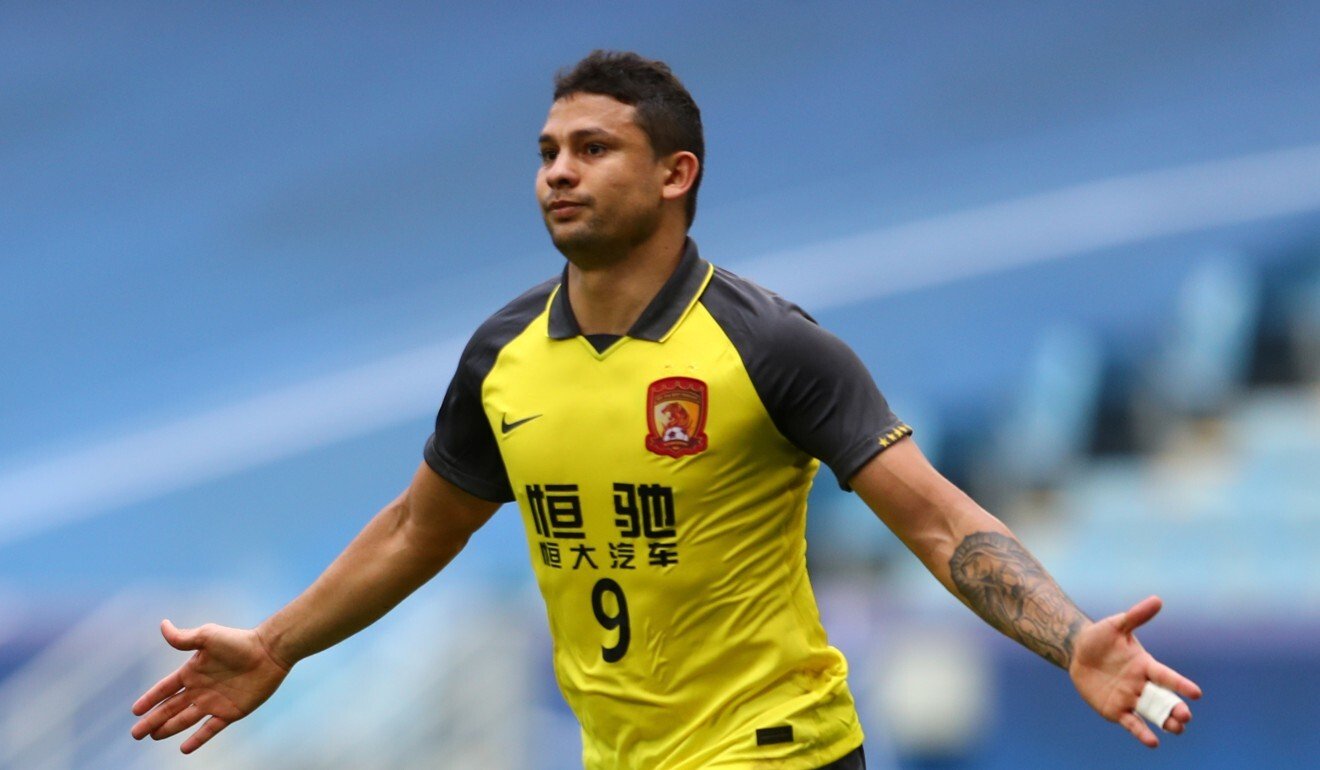
“All Chinese team”
In February 2017, Evergrande chairman Xu Jiayin expressed his dream that the club would field an all-Chinese team by 2020.
“In my view, the ideal all-Chinese squad for Evergrande is composed of a world top manager and all native players,” Xu was quoted as saying at an event before the start of the CSL season. “Our purpose ... is to contribute to the development of Chinese football and all our work needs to be focused on this.”
They did that, in a way, in a friendly match behind closed doors last May with the presence of three naturalised Brazilians – Elkeson, Ricardo Goulart and Fernandinho.
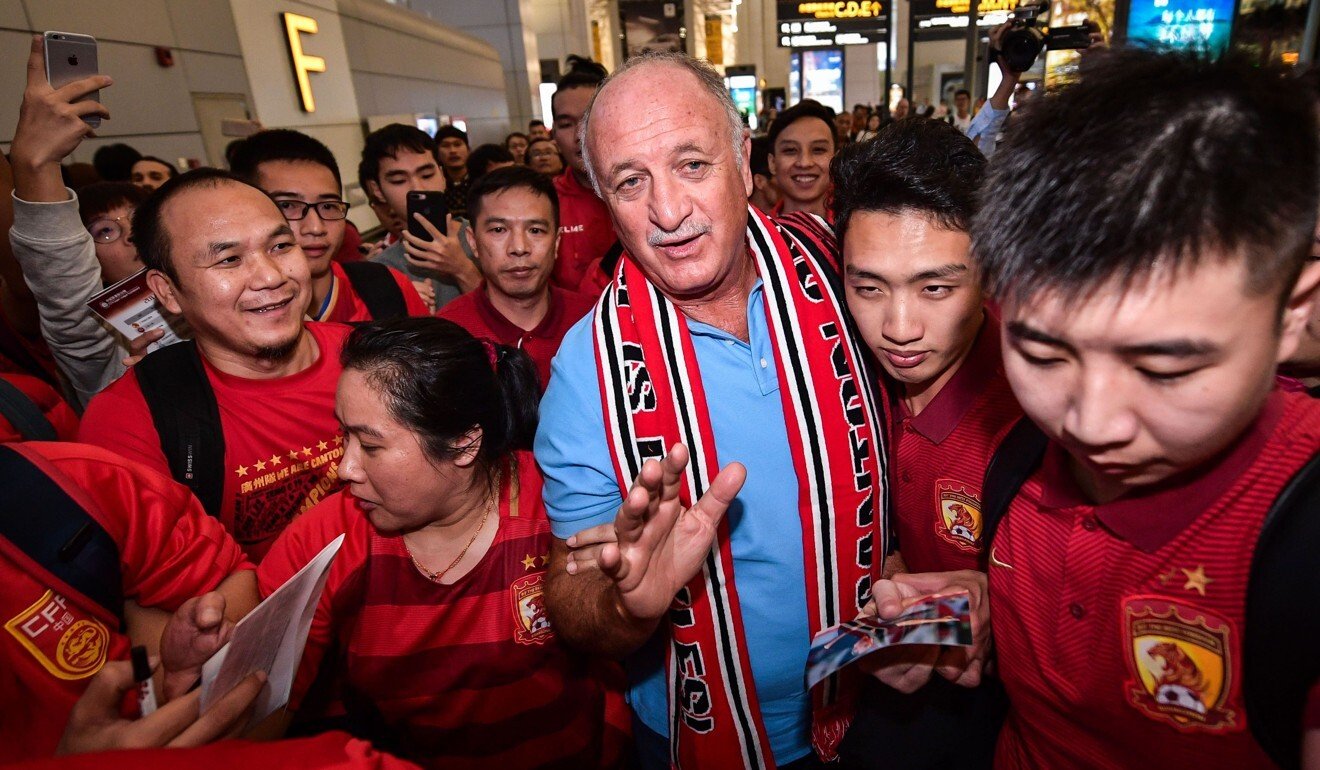
Evergrande have been at the forefront of the naturalisation policy in Chinese football with Ty Browning and Alan Carvalho among the other players in the squad to have become eligible for China’s national team.
This has only added to the situation where Evergrande have come to be seen as the “de facto” Team China within the Chinese Super League.
This is among the reasons that many in China expect to see the club’s safety secured despite the well-publicised struggles of the Evergrande Group.
Xu’s championing of naturalised players for the national team alongside both Lippi and Cannavaro taking charge of China from the club hints at the close relationship between Evergrande and the Chinese Football Association.
When Lippi moved to the national team his salary was boosted by an adviser role at Evergrande’s academy to make him the highest paid football manager in the world.
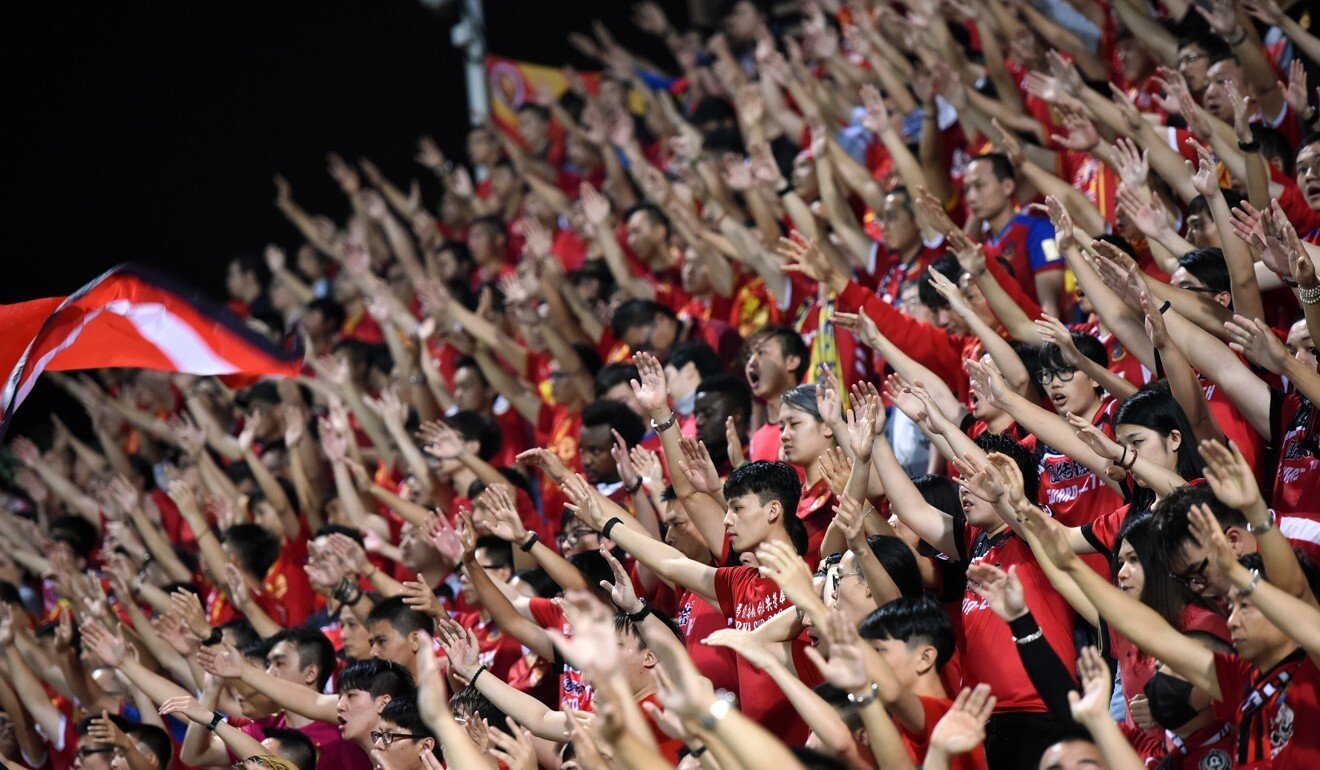
Alibaba
While there are some parallels with Jiangsu Suning (later renamed as Jiangsu FC), there are other key differences beyond the relationship between Xu and the Chinese Football Assocation.
Chief among them is that Evergrande are not the only financial supporter backing the club.
Even with the end of company names for Chinese football clubs ahead of this season, everyone was still calling them Evergrande or “Hengda” in Mandarin after the real estate group’s former name but the club’s full name has been Guangzhou Evergrande Taobao FC since 2014.
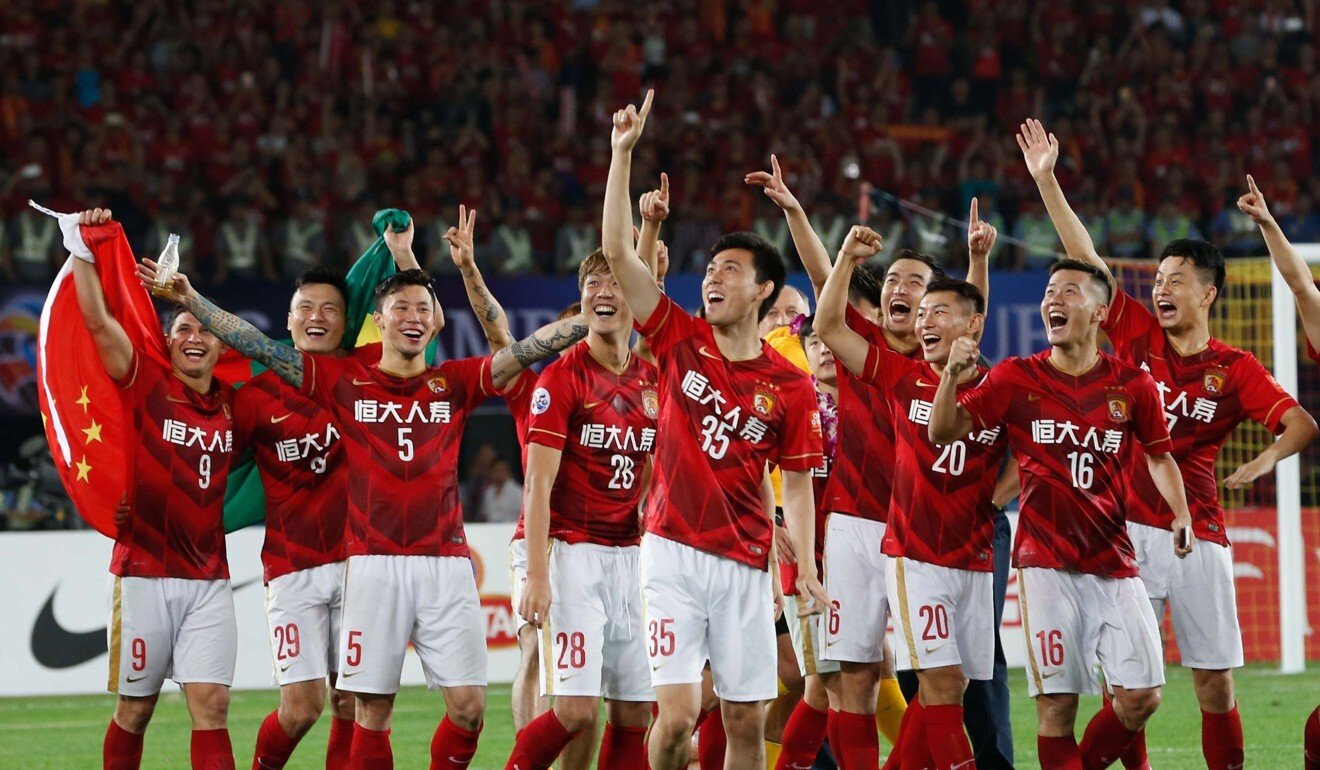
That was the time that the Alibaba-backed commerce platform invested in the club, taking a 50 per cent stake in them for a reported 1.2 billion yuan (US$192 million).
By the middle of 2015 the football club was filing for IPO. It has recorded huge losses every year since, with a loss of 1.9 billion yuan (US$274 million) recorded for 2019. Those financial reports also stated that the club’s revenue was bankrolled by Evergrande.
Reports suggest that the club is looking for a bailout amid its owner’s crisis.
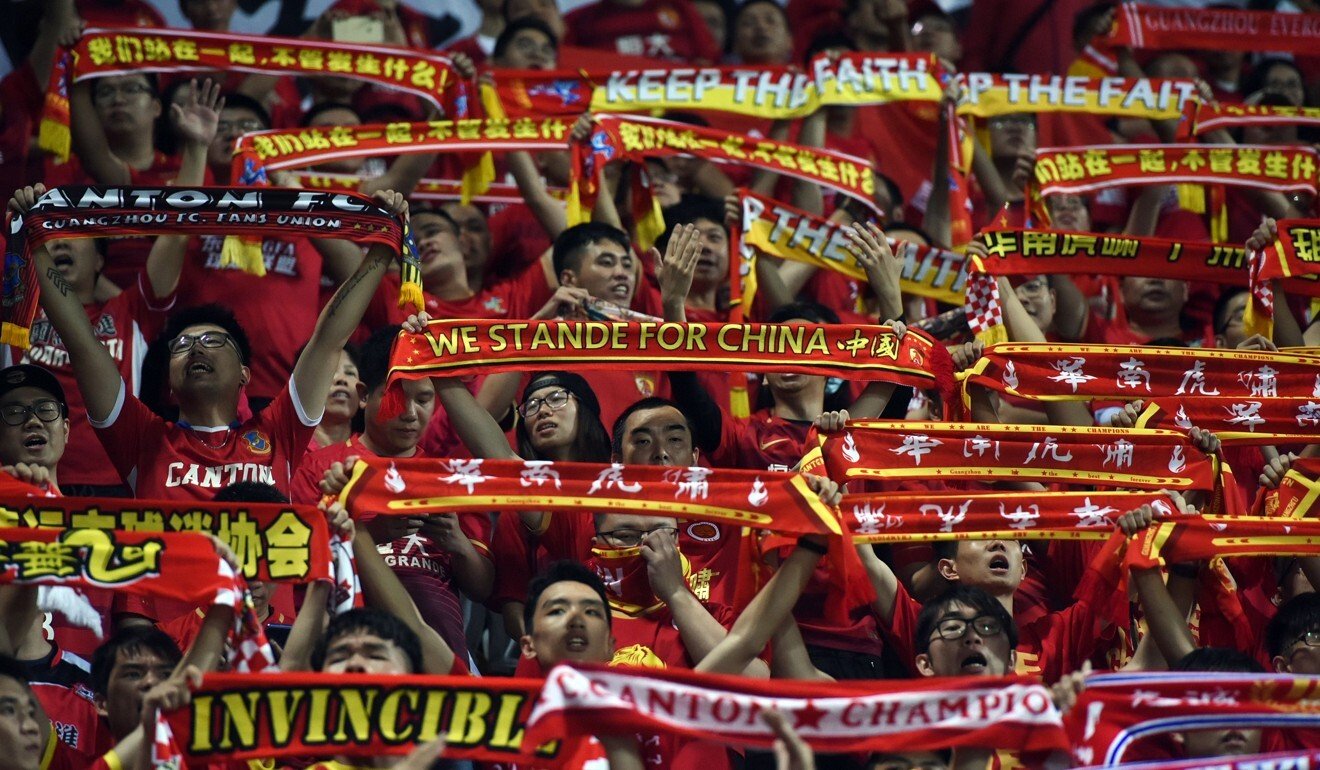
That was the fate of Tianjian Quanjian, Fabio Cannavaro’s former club. The Tianjin outfit was taken over by the local sports bureau after the pyramid scheme of Traditional Chinese Medicine company Quanjian fell down.
The club became Tianjin Tianhai before folding after one season under the sports bureau, though that is less of a fear for the Guangzhou side.
Under Cannavaro, last season was Guangzhou’s first without a trophy in the 10 years since Evergrande took over the club with fans calling on him to be sacked.
Now those fans have much bigger worries.

